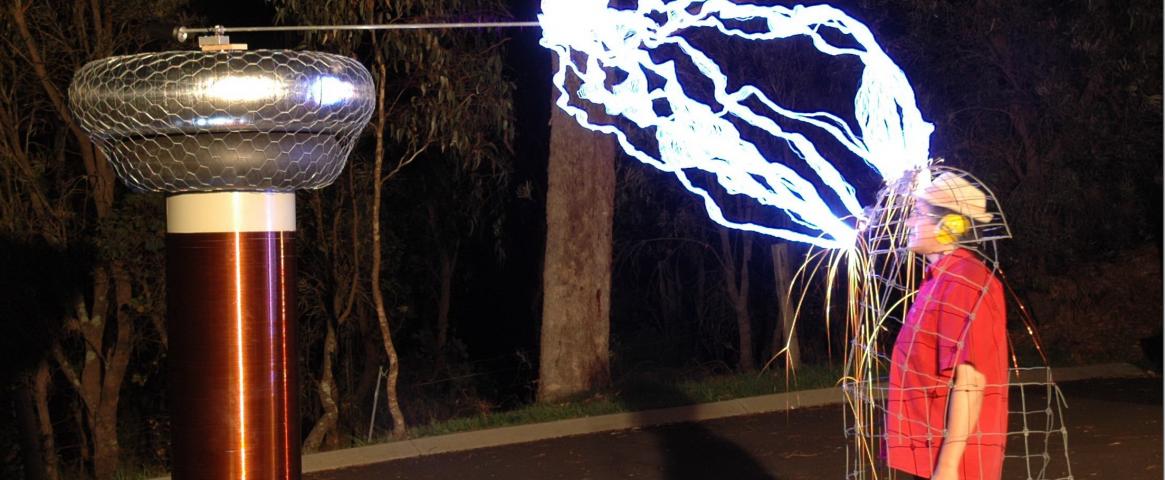By Jennifer Cutraro
Before jumping headfirst into freelance writing several years ago, I was a public information officer, or PIO, at Purdue University, where I wrote about research in the College of Agriculture. I only worked there for two years, and I sure don't consider myself an expert in university marketing and communications. But I did manage to learn a thing or two while on the job:
A university is a great place to work
I loved working as a science writer at a university. I had access to lectures across campus, professional development opportunities such as conferences and on-campus trainings, and the freedom to just walk into someone's lab, point at a complicated-looking piece of equipment, and ask, "what's this?"
I regularly strolled the halls, checking out student research posters and chatting with people I bumped into. It was like all the best parts of college and grad school, minus the exams and term papers. I actually received a paycheck for indulging my inner nerd by reading journal articles, hanging out with faculty and writing about their work. What's not to love about that? Well …
Universities can be frustrating places to work
As a PIO, you don't always get to work on the stories you want to work on. Sometimes, you get stuck writing a news release about a subject that, in your best news judgment, really isn't a story at all. But like all workplaces, universities have their own internal politics, with deans and donors to please. Keep this in mind next time a news release lands in your inbox and has you rolling your eyes and asking, "Why did this PIO flack bother with this story?" The writer might not have had much choice in writing it in the first place and is probably rolling his or her eyes right along with you.
PIOs do a lot more than write press releases
Thankfully, I wasn't a press release machine. At Purdue, the other PIOs and I wrote feature stories for the university research magazine and developed educational exhibits for the Indiana State Museum and the Indiana State Fair. We also led workshops and individual sessions to help faculty learn how to work with the media, from helping them avoid using jargon to prepping them for on-camera interviews.
The best stories sell themselves
My news coordinator didn't push her staff to pitch news releases to reporters — which certainly worked to my benefit, because the idea of pitching reporters always made me feel a little creepy. It's probably for the best that I was only a PIO for two years, because after a while, I'm sure somebody would have figured this out.
But I digress. Our coordinator's general philosophy was that good stories sell themselves. Rather than making a lot of direct appeals to reporters, we sent our news releases through channels such as Newswise and Eurekalert and waited to see what happened.
My favorite example of this system working? The very first news release I ever wrote — while I was still a graduate student — was unexpectedly picked up by the New York Times, without anyone making a direct appeal to the reporter who wrote it. In our news office, having a release get picked up by the Times was akin to hitting the jackpot, so this was exciting indeed. Another release, about a quirky project to farm crops in an underground mine, took off like wildfire without a phone call to a single reporter. I suspect it's because it had the word "pharming" in the headline. Which brings me to another point: It's true what they say about charismatic megafauna. Press releases about turkeys and squirrels almost always get picked up.
Read beyond your beat
Our news coordinator also assigned each writer in our office a different daily newspaper to read every morning (yes, we read actual newspapers, printed on paper), to stay on top of the news. On my first day of work, I was assigned to read the Wall Street Journal. "Great," I thought. "The one newspaper I've never read in my life and have no interest in whatsoever." Did I mention that I worked at Purdue early in my career? It was a novice's naivete: While I devoured science coverage in outlets like the Science Times, I wasn't so keen on what I assumed would be a collection of dry stories about banking and finance.
What I quickly learned was that science and agriculture stories were also business stories and economic impact stories — and those stories were in the news just about every day.
Oh, and I also found that the WSJ publishes a great wine column. Purdue, believe it or not, is home to a wine research group, so I could technically say that reading about wine while sipping my morning coffee was a bit of work-related research.
Jennifer Cutraro is the founder and director of Science Storytellers, a program that gets kids to interview scientists just as professional journalists do — and to then share their stories. She also has written for the Boston Globe, PBS KIDS, Science News for Students, and the New York Times Learning Network.
Photo by Peter Terren, Tesla Downunder


